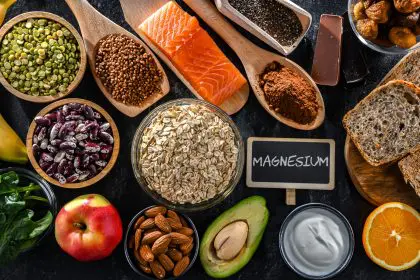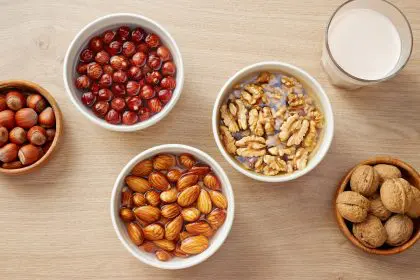Decoding the heart-health puzzle
Cardiometabolic diseases, a cluster of conditions including type 2 diabetes, coronary heart disease, and stroke, have long been a focus of medical research. As these ailments continue to affect millions worldwide, scientists have been tirelessly exploring dietary factors that could potentially mitigate risks. This latest study, encompassing data from over 188,000 individuals, sheds new light on the role of caffeinated beverages in this complex health equation.
The magic numbers: Optimal consumption for heart health
The research findings present a compelling case for moderate coffee and tea consumption. Participants who indulged in two to three cups of coffee or up to three cups of tea daily exhibited the most favorable heart health outcomes. This optimal range of consumption was associated with a remarkable reduction in cardiometabolic disease risk – nearly 50% for coffee drinkers and about 40% for those who enjoyed a mix of coffee and tea.
Unveiling the protective mechanisms
At the heart of these benefits lies a potent cocktail of bioactive compounds found in both coffee and tea. Rich in antioxidants, these beverages act as cellular guardians, shielding the body from oxidative stress and inflammation. The study suggests that regular consumption may enhance the body’s ability to process sugar, maintain vascular health, and reduce systemic inflammation – all crucial factors in preventing cardiometabolic diseases.
Coffee vs. tea: A tale of two elixirs
While both beverages offer substantial health benefits, they each bring unique strengths to the table. Coffee emerges as a powerful ally in blood sugar management, potentially explaining its pronounced effect on diabetes risk reduction. Tea, particularly green varieties, excels in promoting blood vessel function and lowering blood pressure.
The antioxidant profiles of these drinks further differentiate their benefits. Coffee boasts high levels of chlorogenic acids, while tea is abundant in flavonoids, especially catechins. This diversity in beneficial compounds underscores the potential advantages of incorporating both beverages into one’s diet.
Beyond caffeine: Decaf options and energy drinks
For those sensitive to caffeine or looking to reduce their intake, decaffeinated versions of coffee and tea still offer many of the same health-promoting compounds. However, the study suggests that caffeine itself may provide additional metabolic benefits, particularly in sugar processing.
It’s crucial to note that not all caffeinated beverages are created equal. Energy drinks, often laden with sugar and artificial ingredients, stand in stark contrast to the natural benefits of coffee and tea. Health experts caution against relying on these highly processed alternatives for a caffeine boost.
Navigating caffeine consumption: Guidelines and considerations
While the study highlights the potential benefits of moderate caffeine consumption, it’s essential to approach intake mindfully. The U.S. Food and Drug Administration recommends a daily caffeine limit of 400 mg for most adults – roughly equivalent to two to three 12-ounce cups of coffee.
Individual responses to caffeine can vary widely, influenced by factors such as genetics, body weight, and overall health status. Those with pre-existing health conditions or concerns should consult healthcare providers to determine safe and appropriate consumption levels.
The sweet dilemma: Balancing flavor and health
As coffee and tea enthusiasts celebrate these findings, it’s important to consider how these beverages are prepared. The addition of excessive cream, sugar, or flavored syrups can quickly transform a health-promoting drink into a calorie-laden indulgence. To maximize benefits, experts recommend opting for low-fat milk or plant-based alternatives and limiting sweeteners to a teaspoon of honey or a non-nutritive option.
Brewing a healthier future: Implications and further research
This study marks a significant milestone in our understanding of dietary influences on cardiometabolic health. However, as with all scientific research, it opens the door to further questions and avenues of investigation. Future studies may delve deeper into the specific compounds responsible for these protective effects, explore potential interactions with other dietary factors, and examine long-term outcomes across diverse populations.
From cup to clinic: Translating research into practice
As this research gains traction in the medical community, healthcare providers may increasingly consider coffee and tea consumption as part of a holistic approach to cardiometabolic disease prevention. Nutritional counseling could evolve to include guidance on optimal beverage choices and consumption patterns.
A global perspective: Cultural variations and accessibility
While the study provides compelling evidence for the benefits of coffee and tea, it’s important to consider global variations in beverage preferences and availability. In regions where these drinks are not traditional staples, exploring local alternatives rich in similar bioactive compounds could offer comparable health benefits.
The bottom line: A toast to heart health
As we navigate the ever-evolving landscape of nutritional science, this study offers a refreshing perspective on two of the world’s most beloved beverages. For coffee and tea drinkers, it provides reassurance that their daily ritual may be contributing to long-term heart health. For those yet to embrace these drinks, it presents an invitation to explore their potential benefits.
In the grand tapestry of health and wellness, moderate coffee and tea consumption emerges as a simple yet potentially powerful thread. As we continue to unravel the complexities of cardiometabolic diseases, these humble beverages remind us that sometimes, the most effective health interventions can also be the most enjoyable.
So, the next time you reach for your morning cup, take a moment to savor not just the flavor, but also the potential health benefits brewing within. In moderation, that daily indulgence might just be a cornerstone of a heart-healthy lifestyle.













